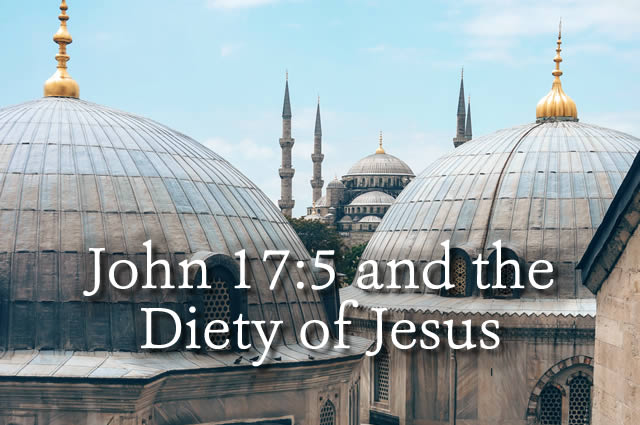“And now, O Father, glorify thou me with thine own self with the glory which I had with thee before the world was.” John 17:5
Our discussion of this passage will take two directions. First, how the Latter-day Saints use this text, and second, how it shows the deity of Christ to a Jehovah’s Witness.
Mormon Apostle and author, LeGrand Richards, used this text, and Jeremiah 1:5, to prove that we all pre-existed this earthly life. In his book A Marvelous Work and a Wonder (page 39), Richards said, “… for we all lived in the spirit before we were born in the flesh. The Lord knew us and knew the nature of our spirits and the measure of our integrity. That is why he selected Jesus Christ ‘before the world was’ to be the Redeemer of the world.”
Jesus pre-existed this earthly life because He is Eternal, without beginning or end, not because He was born to a Mormon god and one of his goddess wives. As John 1:1 says, “In the beginning was the Word.” John 8:58 says, “Before Abraham was (Greek genesthai meaning ‘came to be’), I am” (Greek ego eimi meaning ‘I am’ – see Exodus 3:14 for how this equates with the Divine Name). None other than Jesus can lay claim to pre-existing this life.
The LDS will say that because God ‘knew’ them before this life then they must have existed before this life, otherwise how could God say, “Before I formed thee in the belly I knew thee” (Jeremiah 1:5). The simple answer is that God knows all things (I John 3:20), including the future. If God did not know “ALL” things then He would be ignorant of something. How then could He inspire his prophets to speak with such certainty and precision? If He lacked total knowledge He would have to speak in probabilities, not certainties. Perhaps He would be ignorant of someone’s faith and repentance and leave them out of the Book of Life. The Bible does not know such a God.
If the Jehovah’s Witnesses were correct that Jesus was “a god,” a lesser deity, and not equal in His nature with the Father, how could Jesus then say to the Father “glorify thou me with thine own self?”
In Isaiah 42:8, Jehovah says, “and my glory will I not give to another.” If Jehovah does not give His glory to another then how can the Son ask the Father to glorify Him with the Father’s own self. It is one thing to say God will give glory to another, but never His own glory.
The glory of God is infinite in nature. It is what He had to prevent man from seeing in its full brilliance or else they would die (I Timothy 6:16 with Exodus 33:20). No angel, even an Archangel, could be said to have a glory that is infinite. It is this glory of The Infinite that Jesus asked to receive again.
Jesus continued a few verses later referring to those believers whom the Father had given to the Son. He said, “And all mine are thine, and thine are mine.” This is equality of possession between the Father and Son.
By David Henke






